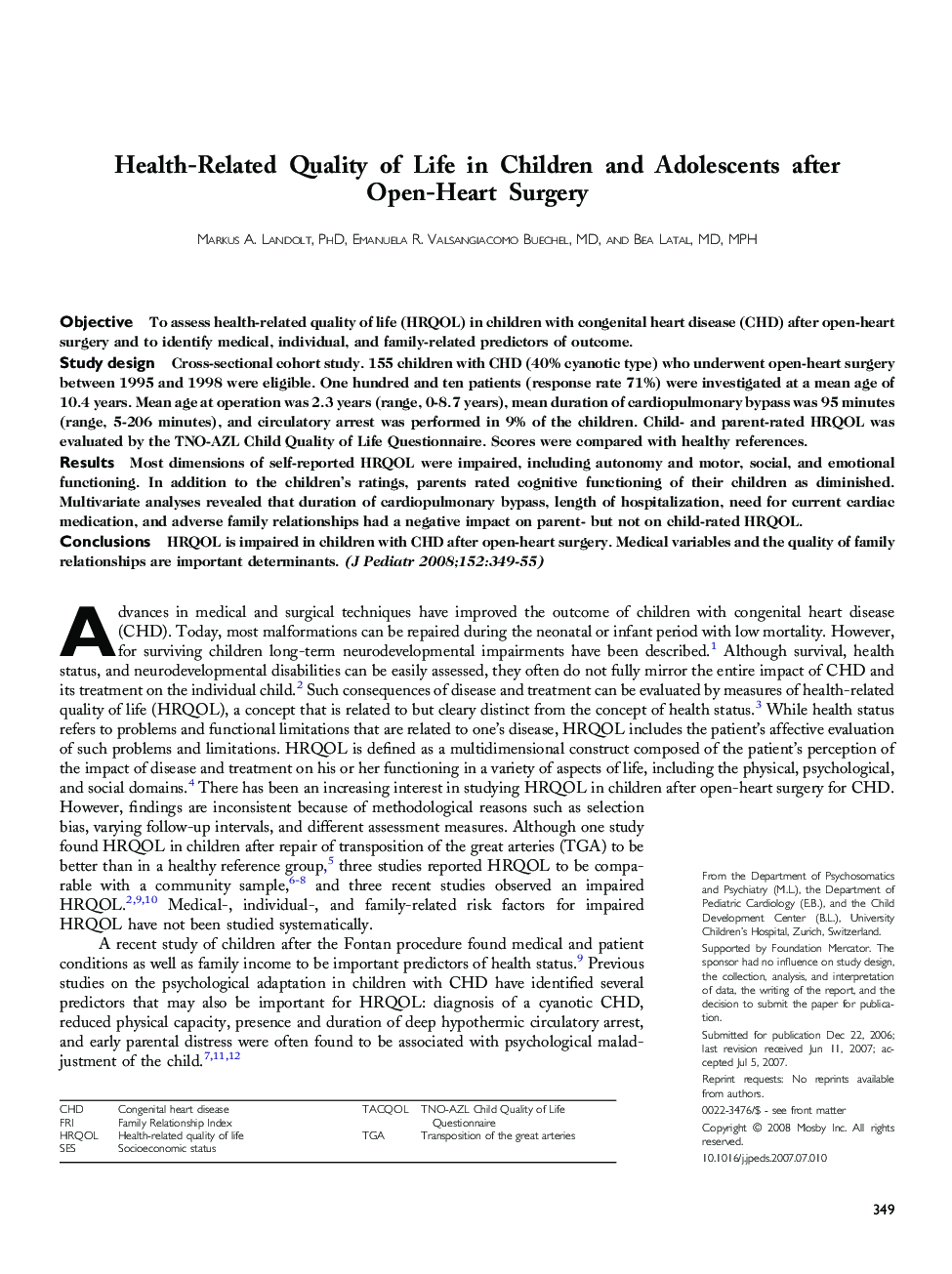| Article ID | Journal | Published Year | Pages | File Type |
|---|---|---|---|---|
| 4167801 | The Journal of Pediatrics | 2008 | 7 Pages |
ObjectiveTo assess health-related quality of life (HRQOL) in children with congenital heart disease (CHD) after open-heart surgery and to identify medical, individual, and family-related predictors of outcome.Study designCross-sectional cohort study. 155 children with CHD (40% cyanotic type) who underwent open-heart surgery between 1995 and 1998 were eligible. One hundred and ten patients (response rate 71%) were investigated at a mean age of 10.4 years. Mean age at operation was 2.3 years (range, 0-8.7 years), mean duration of cardiopulmonary bypass was 95 minutes (range, 5-206 minutes), and circulatory arrest was performed in 9% of the children. Child- and parent-rated HRQOL was evaluated by the TNO-AZL Child Quality of Life Questionnaire. Scores were compared with healthy references.ResultsMost dimensions of self-reported HRQOL were impaired, including autonomy and motor, social, and emotional functioning. In addition to the children’s ratings, parents rated cognitive functioning of their children as diminished. Multivariate analyses revealed that duration of cardiopulmonary bypass, length of hospitalization, need for current cardiac medication, and adverse family relationships had a negative impact on parent- but not on child-rated HRQOL.ConclusionsHRQOL is impaired in children with CHD after open-heart surgery. Medical variables and the quality of family relationships are important determinants.
